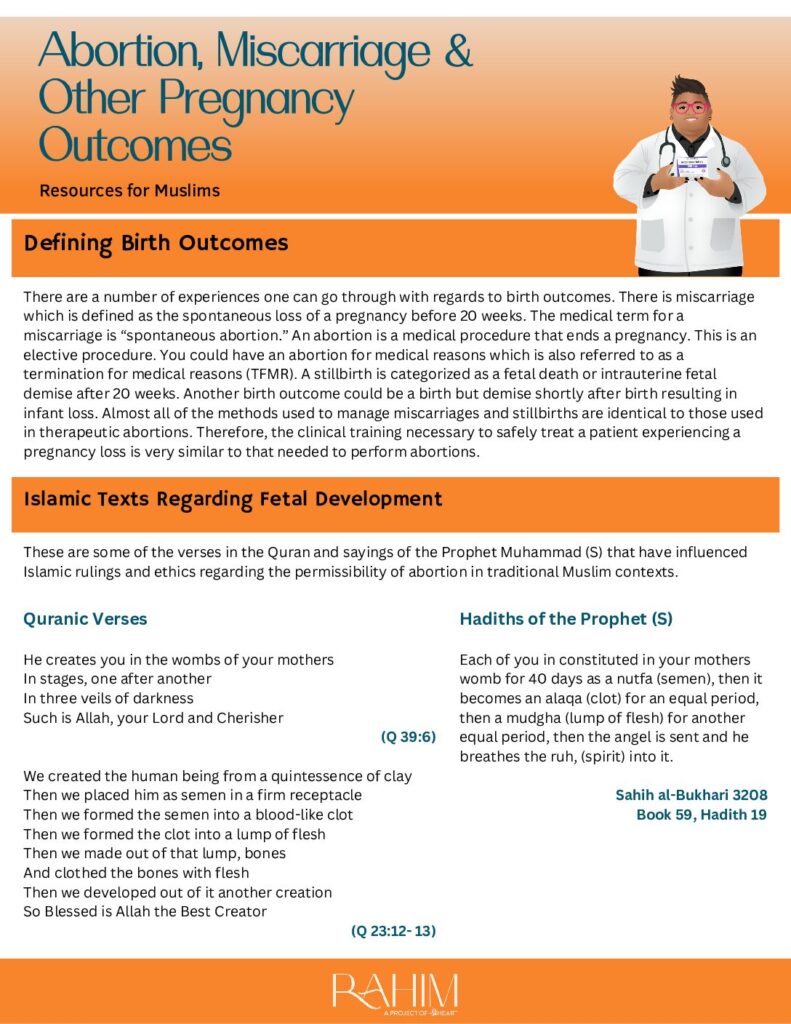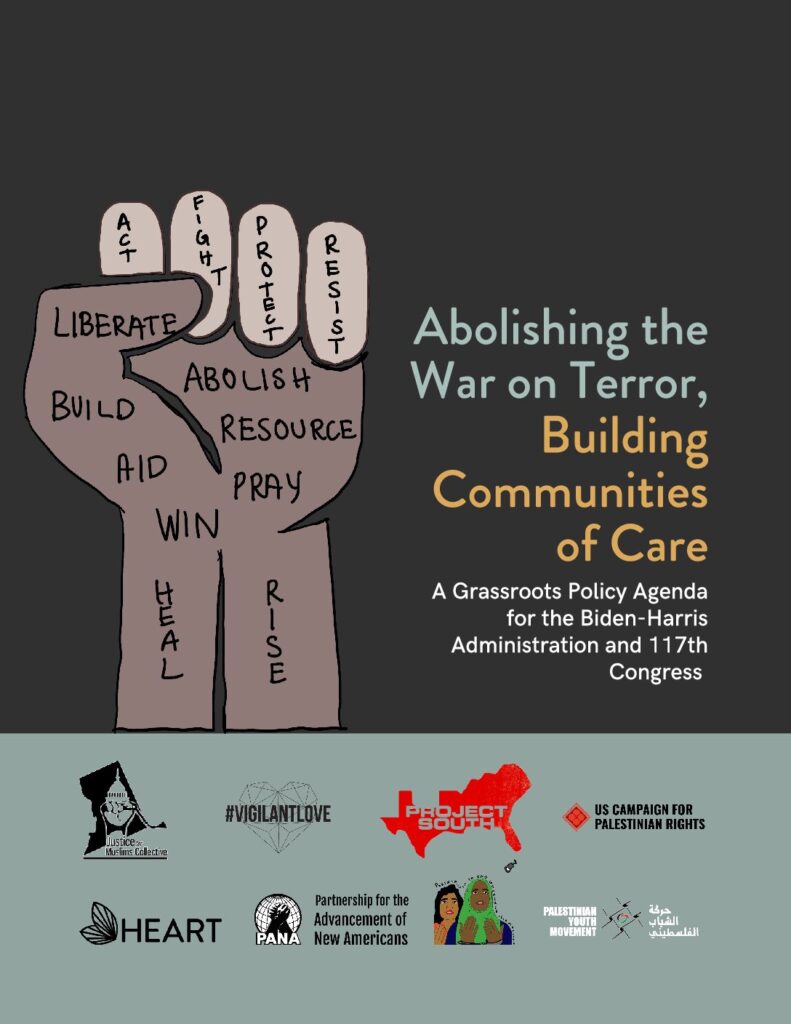
Justice for Muslims Collective, HEART Women & Girls, Vigilant Love, the Partnership to End Gendered Islamophobia, Project South, the Partnership for the Advancement of New Americans (PANA), and the US Campaign for Palestinian Rights (USCPR) are thrilled to launch “Abolishing the War on Terror, Building Communities of Care” grassroots policy agenda.
This agenda is a labor of love, a product of lived expertise, and a model for community care. As the Biden Administration, alongside a new Congress sets the course for the next four years, we are calling for abolishing the War on Terror and reinvesting resources into structures of community care.
The agenda is broken into 2 main sections - one calling on abolishing and divesting from harmful state policies and the second building our communities of care. We call for abolishing and divesting from:
Violence, War, Imperialism & the War on Terror Infrastructure
Wars, Imperialism, and Militarism Abroad Under the War on Terror
Military Funding to Israel and Palestine
Immigration, Refugee, Asylum Policies, Programs & Institutions
Mass Surveillance
Prisons, Jails & Pipelines to Prison.
We call on investing into:
Anti-Poverty, Health Justice & Housing Justice
Covid-19
Reproductive Justice
Disability Justice
Community-Led Justice
Voting Rights, Census, & Structural Democratic Shifts
Gender-Based Violence and Gender Justice
Environmental and Climate Justice
We hope this agenda is used as an educational tool and resource for communities impacted by the War on Terror, grassroots organizations, movement groups, and policymakers in order to build power, heal, and enact change at the local, state, and federal level.
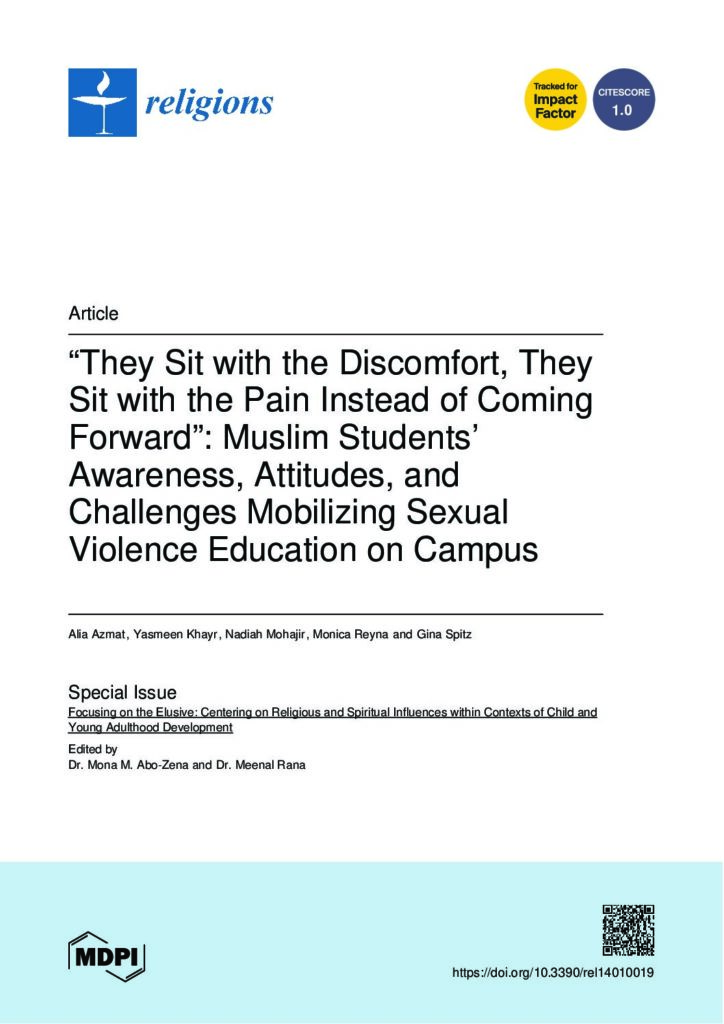
There is limited literature on anti-sexual violence programming on college campuses for historically underrepresented groups in the United States, including, and especially, for Muslim students. This study will explore the following questions: (a) What is Muslim students’ awareness of sexual violence on college campuses? (b) What are Muslim students’ attitudes towards sexual violence?, and (c) What challenges do Muslim survivors and allies of sexual violence face on college campuses? A mixed methods analysis of quantitative (n = 91) and qualitative data (n = 8) was utilized to understand the impact of anti-sexual violence advocacy programming on college campuses. Results demonstrate that Muslim women reported knowing more survivors of sexual assault than Muslim men. Women also reported significantly higher levels of disagreement with victim-blaming statements compared to men. Qualitative interviews with eight student leaders demonstrated challenges to sexual assault programming on campus, include Islamophobia, power struggles between student groups, denial that sexual violence is a problem, and a lack of engagement from men. Results from this study highlight several key findings including (1) rape culture attitudes vary significantly between Muslim men and Muslim women, (2) barriers to facilitating sexual violence programming include several systems of oppression, and (3) the urgent need to provide nuanced programming to support minoritized youth communities on college campuses.
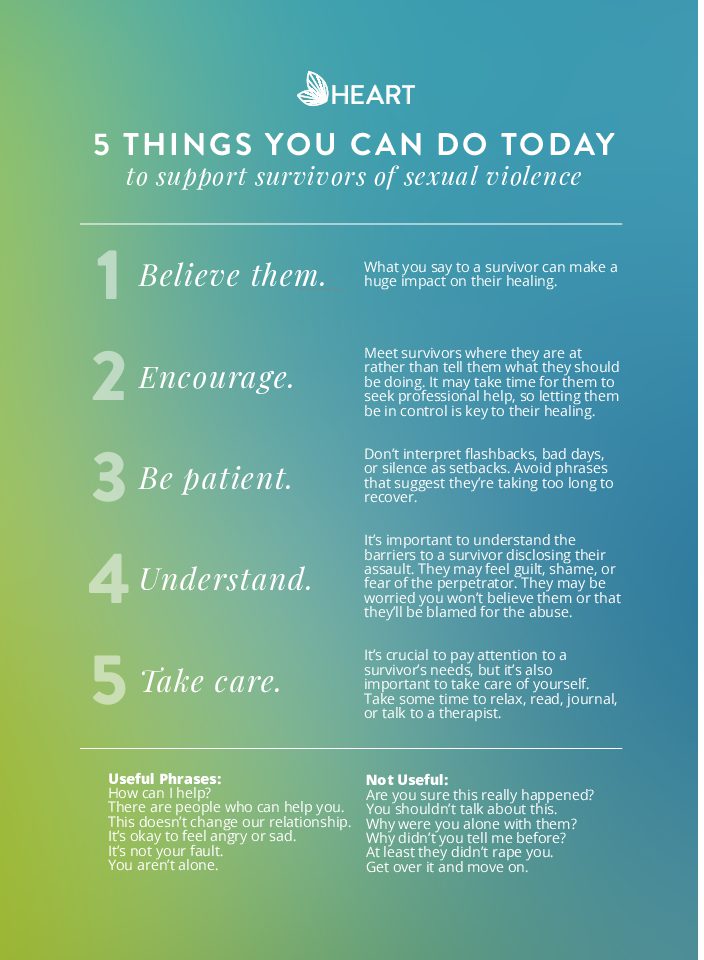
You don’t have to be a sexual violence activist, police officer or social worker to support survivors and work toward prevention. Learn what we all can do to create safer communities.
Content warning: Sexual violence.
This video is one of three that were created for Sexual Assault Awareness Month (2019), by spoken word artists in the DC area, in collaboration with The Sanctuaries. This spoken word piece is titled "98 seconds."
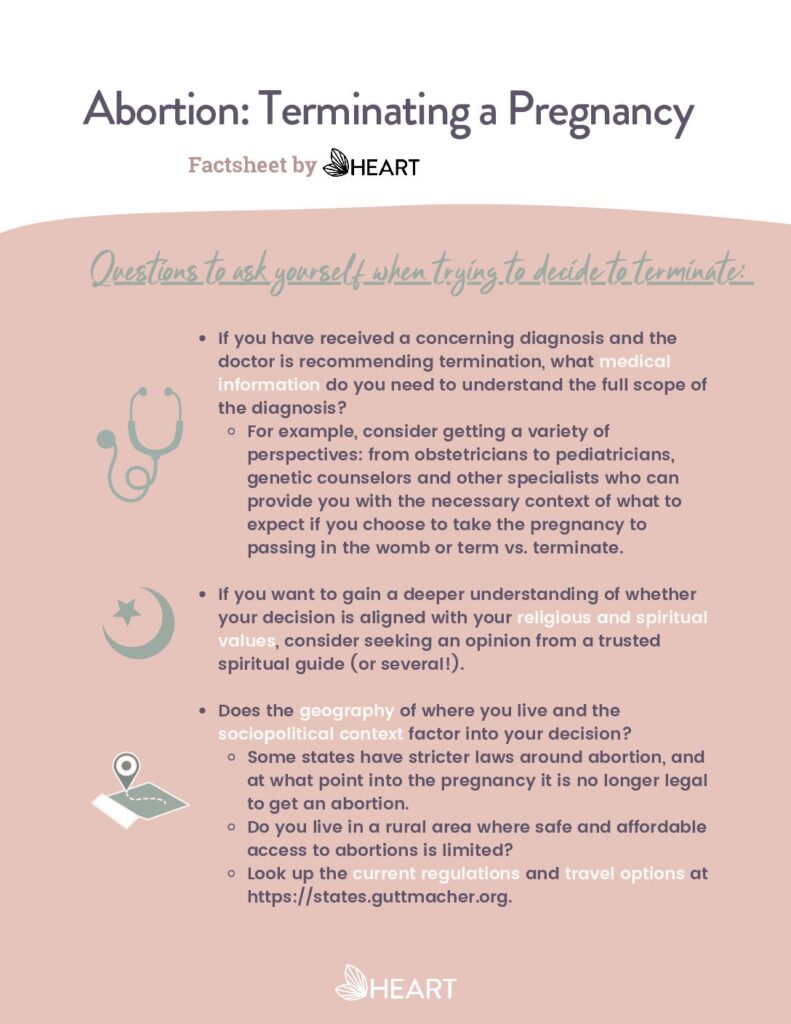
This is a list of resources when you have questions regarding your decision to terminate a pregnancy.
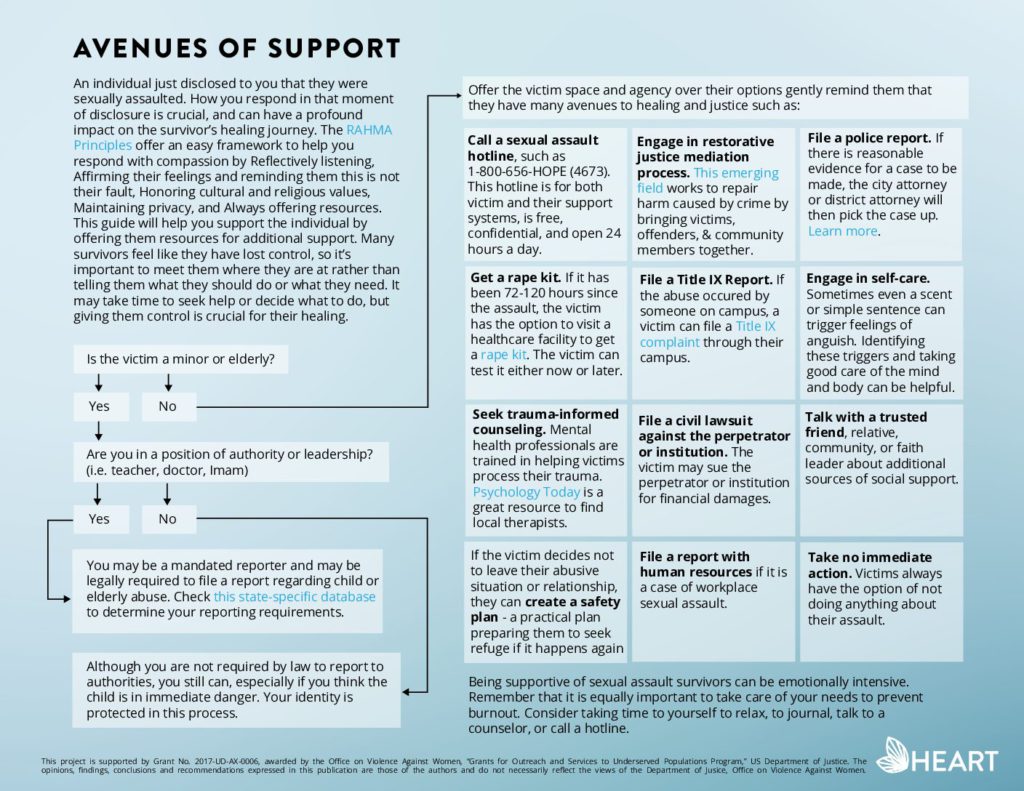
Many survivors feel like they have lost control, so it’s important to meet them where they are rather than telling them what they should do or what they need. In this easy to read flowchart, you will be able to determine the range of options available as you offer support to someone who experienced sexual assault.

The allegations against Aziz Ansari have been met with a wide swath of reactions, including in the South Asian community. You may already have a particular viewpoint on the story recounted by Grace about Ansari, or you may have questions and concerns about what you are reading and hearing. We put together this guide to spark greater awareness among South Asians in particular about the range of issues that have arisen in the aftermath of the story about Aziz Ansari. The guide also includes resources for additional reading and sharing.
